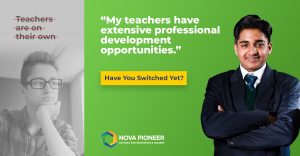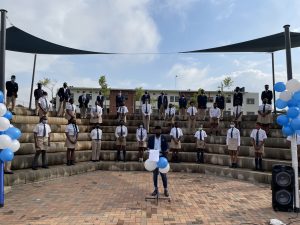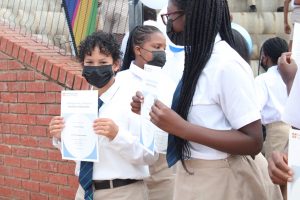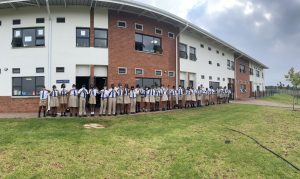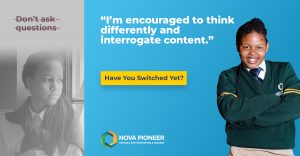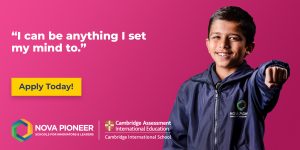Novaneers admired for their strong set of values and principles
Take a few seconds to think of someone that you deeply admire… This could be a friend, a colleague, a family member or maybe someone famous. Now note down your answers to these 6 questions, as you keep this person in mind… Do they: believe that they can achieve
Take a few seconds to think of someone that you deeply admire…
This could be a friend, a colleague, a family member or maybe someone famous.
Now note down your answers to these 6 questions, as you keep this person in mind…
Do they:
- believe that they can achieve more by working together with others?
- see failure as an opportunity to grow?
- set high standards for themselves?
- try to come up with solutions when faced with a problem?
- put others before themselves and engage with those around then with humility and generosity?
- remain open to learning and discovering new things?
If most of your answers were “yes” to the questions above, the person that you were thinking about and admire is undoubtedly someone who lives their life guided by a strong set of values and principles.
You may find it interesting that there were purposefully no questions above that were centred on the person’s expertise, accomplishments, capabilities, intellect or professional/career success. The person that you had in mind may exemplify all or most of the qualities portrayed in the 6 questions AND they may also be very smart, accomplished and successful in their field. (Whilst I don’t deny the value that success in one’s chosen profession or field brings, it certainly cannot be and typically isn’t, the only important ingredient!)
So my point is that many people that we admire are first and foremost deeply principled, have a growth mindset and live their lives with integrity. Isn’t this what each of us parents want for your children as they navigate their way through life… to be beacons for others around them appreciated and admired for their resilience; their selflessness; their grit and determination in the face of adversity; their curiosity and openness to grow and learn?
At Nova Pioneer, we place a lot of care and thought in integrating our school’s six culture principles into the in-class and extra-mural experiences, into how our lesson content is designed and how it is delivered.
We have seen the power of helping students as early as pre-primary and through primary and secondary school to live by, to learn by and be guided by our SIX NOVA PIONEER CULTURE PRINCIPLES:
- Enquiry-based learning means that Nova Pioneer students are encouraged to ask questions; they research and explore various topics (rather than just been lectured on these) which means that they foster a sense of curiosity and exploration from a young age. They become life-long learners. Nova Pioneer current students and alumni are described as curious and wanting to learn and discover more and more about topics. (Joy of Learning).
- Our students are purposefully challenged; they are not scared to try new things; to fail and learn from these experiences. They also embrace feedback and see the value of giving and receiving feedback (Always Growing).
- Novaneers work in groups on tasks, class-work and projects. They quickly experience the benefits of collaboration – a life-long skill (Greater Together).
- It’s with great pride that we celebrate Novaneer students of all ages for their service within the school and within their community, selflessly helping others most in need (Servant Leadership).
- Novaneer students set high goals for themselves because they are not afraid to fail and because they are not scared to try new things. They build self-confidence and set their targets high (High Expectations).
- It is very rare that a Nova Pioneer student approaches their teacher or fellow Novaneer with a problem without a suggested solution. Novaneers are encouraged to be critical thinkers and natural problem solvers (Solutions First).
Cast your mind forward 10 or 20 years from now. Someone you know is asked to think of a person that they most admire and it is your child that comes to their mind. It is your child (probably a young adult by then) that they admire because they say that your child:
- believes that they can achieve more by working together with others
- sees failure as an opportunity to grow
- sets high standards for themselves
- comes up with solutions when faced with a problem
- put others before themselves and engages with those around then with humility and generosity
- remains open to learning and discovering new things.
Nova Pioneer believes that all schools should place as much focus, value and emphasis on character and value development as they do on academic excellence. Is your child’s current school doing this?
